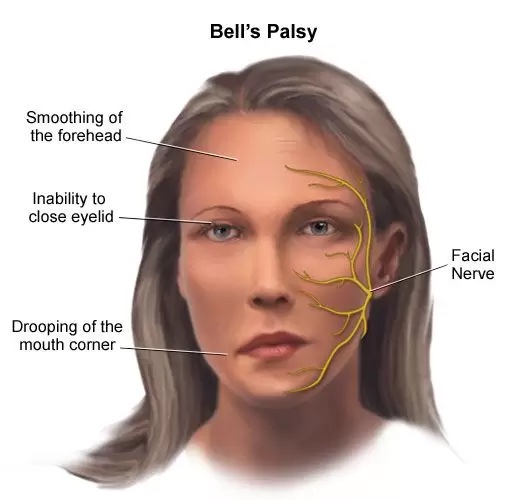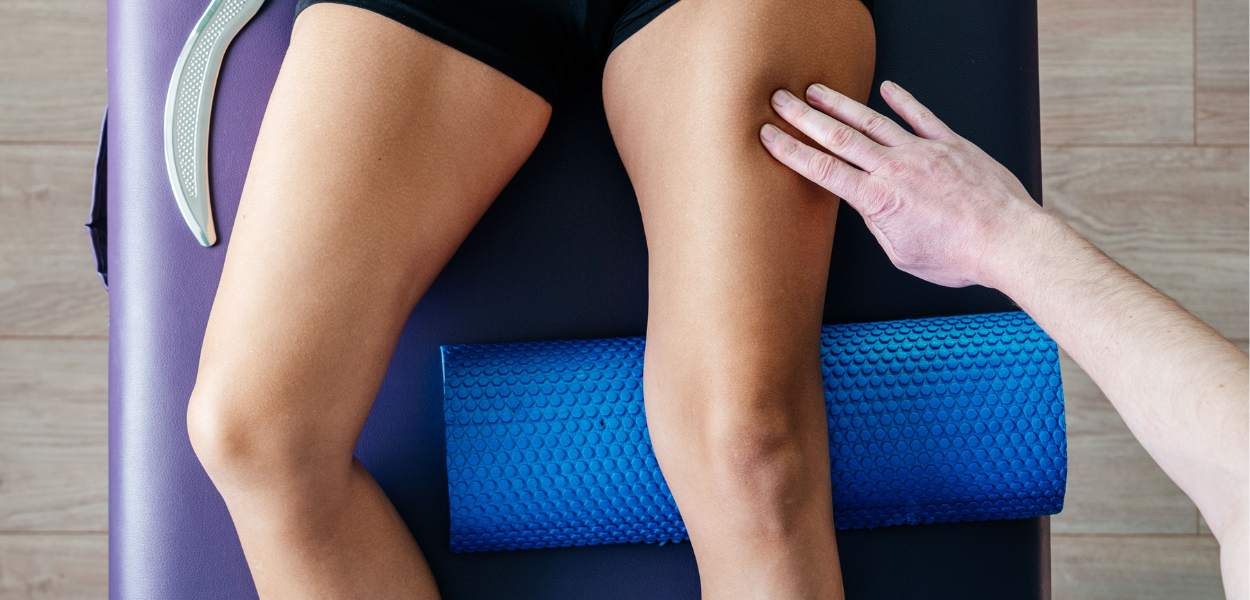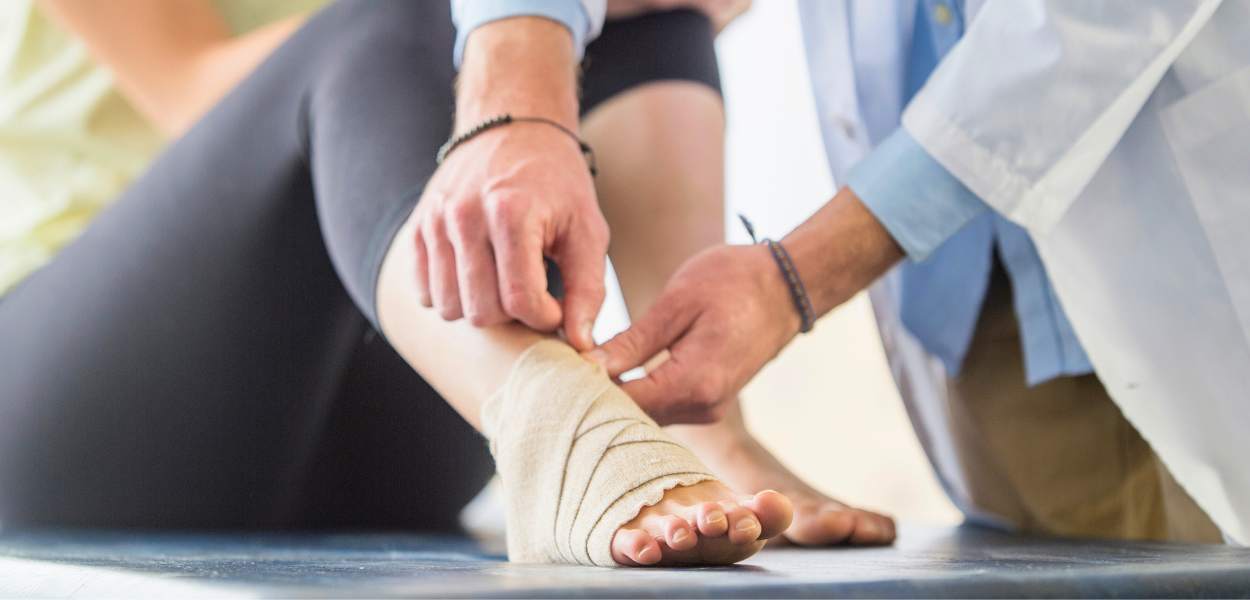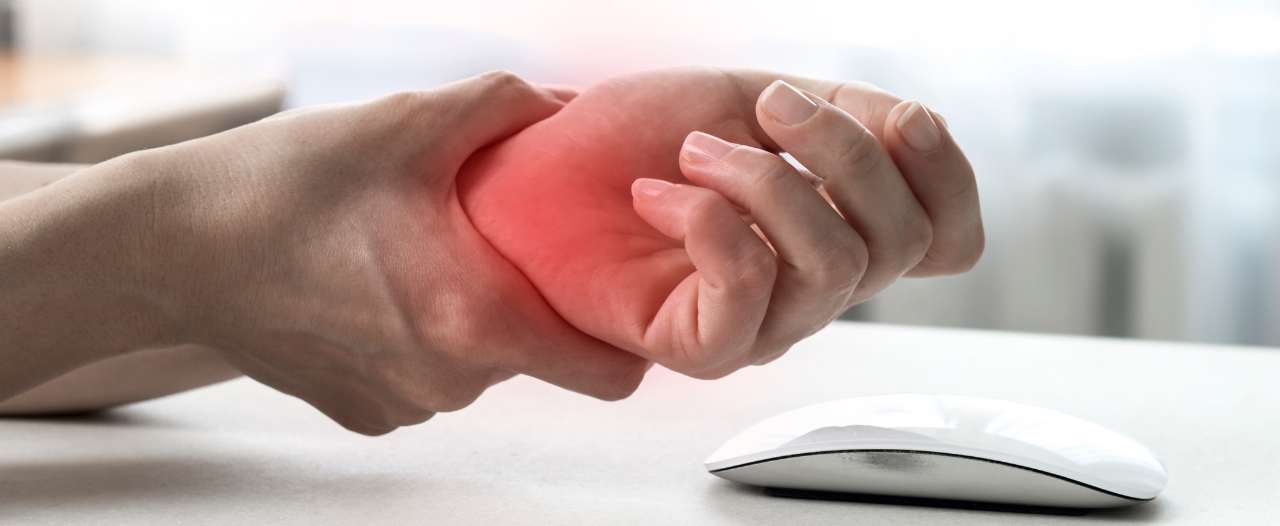Carpal Tunnel Syndrome
Carpal Tunnel Syndrome is a common condition that affects many people who do repetitive hand and wrist movements. It is typically associated with modern office workers, who spend a lot of time typing and using a mouse, making it the one of the most common repetitive stress injuries in the workplace.
Carpal tunnel syndrome occurs when the median nerve, which runs through the carpal tunnel in the wrist, becomes compressed or pinched. This causes pain, numbness, tingling, and weakness in the hand and wrist.
Causes & Symptoms
The carpal tunnel is a narrow passageway in the wrist that is formed by bones and ligaments. When the tissues surrounding the flexor tendons in the wrist become inflamed, they can press against the median nerve and make it become compressed, leading to pain, numbness, tingling, and weakness in the hand and wrist.
There are several factors that can increase the risk of developing Carpal Tunnel Syndrome:
- Repetitive hand and wrist movements, such as typing or using a mouse
- Excessive pressure on the median nerve, such as leaning the wrists on a desk or table
- Prolonged use of vibrating tools / equipment
- Injury or trauma to the wrist
- Arthritis or other joint conditions
- Hormonal changes during pregnancy or menopause
- Thyroid imbalances
- Family history of developing carpal tunnel syndrome
The symptoms can vary from person to person, but they often include:
- Pain or discomfort in the wrist or hand
- Numbness or tingling in the fingers or hand
- Weakness in the hand, or difficulty gripping objects
- Aching or burning sensation in the hand or fingers (especially the thumb, index and middle finger)
- Difficulty performing tasks such as buttoning a shirt, typing on a keyboard
The symptoms of carpal tunnel syndrome can be mild or severe, and they may come and go or persist over time. However, if left untreated, carpal tunnel syndrome can lead to permanent nerve damage and loss of hand function, so it's important to seek treatment as soon as possible if you are experiencing symptoms.
Since there are many factors that can lead to carpal tunnel syndrome, diagnosing the exact root cause of the injury can be difficult. It is essential to get an accurate diagnosis from your healthcare provider for proper treatment and rehabilitation.
Assessment and Diagnosis
In conjunction with medical history taking, our physiotherapists will perform a series of diagnostic tests to determine the severity of your condition and the factors contributing to it. These tests will also help determine the best course of treatment.
Physiotherapy Treatment for Carpal Tunnel Syndrme
Once our physiotherapists have assessed the situation, they will customise a treatment plan to help you recover faster and return to full mobility.
We use a range of physiotherapy methods to treat carpal tunnel syndrome, and other hand/wrist conditions, including:
- Manual therapy including massage and joint mobilization to alleviate pain and reduce inflammation
- Targeted remedial exercises and stretches
- Strengthening exercises to prevent further damage to the median nerve
- Lifestyle adjustments to avoid aggravating the injury
- Ergonomic advice on how to adjust your work or home environment to reduce the risk of worsening the symptoms
Please note that in more serious cases of carpal tunnel syndrome, anti-inflammatory medication or even surgery is required to treat the condition.
Need Help?
If you have been experiencing hand or wrist pain for some time, consult your physiotherapist or medical practitioner for a differential diagnosis. If left untreated, the symptoms of carpal tunnel syndrome can last a long time and get worse. It may actually lead to irreversible nerve and muscle damage to your hands.
Our experienced physiotherapists can provide personalised care to help you manage your symptoms and improve your hand and wrist function.
Contact our clinics today to book your appointment or for more information.
Wellington Street Clinic:
Tel: (852) 2530 0073
WhatsApp: (852) 5542 0407
Jardine House Clinic:
Tel: (852) 2715 4577
WhatsApp: (852) 5422 3760
You may also book your appointment online through the link below:
Latest Physio Tips & Articles

Effective Physiotherapy Treatment for Postpartum Wrist Pain – Case Study
Effective Physiotherapy Treatment for Postpartum Wrist Pain – Case Study A 31-year-old woman who recently gave birth sought physiotherapy treatment…

Bell’s Palsy Case Study: A 55-Year-Old Female
Bell’s Palsy Case Study: A 55-Year-Old Female A 55-year-old female sought medical attention for Bell’s palsy, a condition characterized by…

Myofascial Release Therapy
Myofascial Release Therapy If you've been experiencing soreness lately, you may have come across the term “myofascial release.” This technique…

Treating Minor Sports Injuries
Treating Minor Sports Injuries The Peace and Love Principle Say goodbye to RICE! PEACE and LOVE are the new kids…


